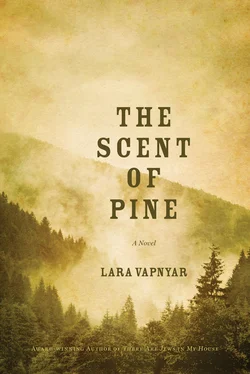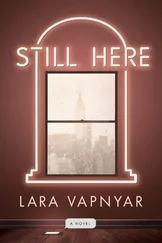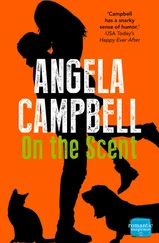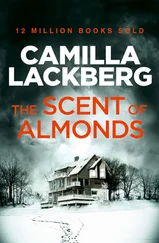“You have to go through the motions in order not to die—great theory. Listen, how old were you when you first started thinking about death?”
“I don’t know. Ten, twelve, I think. You?”
“Six.”
“Six, really?”
“Yes, I think so.”
“You knew you would die at six?”
“I didn’t know for sure, but I was scared that I might. I’ve developed a lot of devices to fight it off.”
Lena peered at Ben, trying to imagine what he looked like as a child. It had been easier to imagine him as a teenager, when he was talking about his school the night before. But a child, a six-year-old? She looked at his eyes. Eyes change very little with age. He must have had the same eyes. Dark, alert, inquisitive.
“What were your devices?”
“Yes. The most important thing is to be on top of it.”
“To be on top of death?”
“Yes. You can’t let it get ahead of you, take you by surprise, you have to anticipate every possible way you might die, and vividly imagine how it will happen. The idea is that nothing happens exactly the way you imagine it. So if you imagine everything and in every detail, nothing will happen.”
“Yes, that makes sense.”
“I was in a car crash once, the tires blew out, and the car went spinning right in the middle of the highway with busy traffic. For a few seconds, I was absolutely sure that I’d die. So in those seconds, I vividly imagined my funeral. See?”
“Wow. Impressive.”
“And you thought you had a fear of death.”
“Hey! You seem to be very possessive. Fine, I grant you the exclusive rights to fear of death. How did it start, by the way? Was it triggered by something? An event or a conversation?”
“No. I just got it. I was lying in bed one night and I got it. All of a sudden. First about my parents. Then right after that about myself. And there weren’t any illusions either. Heaven? Reincarnation? Please! Those were for idiots. I knew that I’d turn into nothing. There was me, and then—snap—there would be nothing. Just like that.”
“Nothing?”
“Yep. Nothing. I imagine nothing as this half-physical environment. Murky and sickening and scary as hell. And then I had to live with this knowledge. Days were okay, more or less, not really okay, of course, but there were ways to distract myself. But at night I would lie and think about it for hours.”
Ben’s eyes squinted a little. He seemed to enjoy telling about his miseries.
“For hours? And you were only six?”
“Yes.”
“Couldn’t you tell your parents?”
“You see, I knew that they’d have to lie to me. About heaven, or going into the ground and eventually turning into a flower, or about a magic drug or some such shit. And they would know that I didn’t believe them, and I would know that they knew, and we would all feel like idiots. I had this recurring nightmare. I would be doing something and suddenly feel that She was somewhere near and getting closer.”
“She?”
“She. Her. I called her She. Just She.”
“What did She look like?”
“I have no idea. I’ve never seen Her. That was the whole point—to do whatever I could to avoid seeing Her. I knew that as soon as She appeared something horrible would happen. Unspeakably horrible. And the only way to save myself was to wake up before She made it to me.”
“How can you possibly make yourself wake up?”
“I had different tricks.”
“Tell me!”
“Oh, come on! You’re just making fun of me!”
“No, I genuinely want to know how to fight death. What if I meet it one day?”
Ben laughed.
“One was to go and take a cold shower, there in my dream. Or sometimes I just had to shut my eyes really tight and make a serious effort to open them.”
“In your dream?”
“Yes, in my dream.”
“Did it work?”
“Sometimes I would open my eyes and wake up, there, in my bed, and that was good. But other times I would open my eyes and wake up someplace else. And that meant that I wasn’t awake, that I was simply in some other dream. But the most frightening thing of all was when I opened my eyes and found myself in my bed, but knew that I hadn’t woken up, that I was still in my dream. Then I knew that She’d come for sure.”
A passing car honked at them. Lena looked at the speedometer. It showed 50 mph. Ben must have been too much into his story to keep up with the flow of traffic. She found it touching.
“There was this one time at the cabin,” he said. “It happened at the cabin. I woke up in the middle of the night with an acute feeling that there was something in the room. Some presence. I thought it was a moose, but then I realized that the moose couldn’t possibly have gotten in. So it must be Her. There was only one bed. My father and I shared a bed, and he took up a lot of space, so I wound up very close to the wall. The cabin was made from these exposed logs. They were dark and stringy. I imagined squeezing inside them, hiding from Her. I kept tossing and turning, until my forehead touched the wall. I never realized how fuzzy it was. Ticklish. For some reason, I found it comforting, I knew that as long as I had my forehead pressed against that wall, She wouldn’t get me. I felt so relieved that I started to cry.”
Ben fell silent and peered ahead. Then he shook his head. Lena thought she saw tears in his eyes, but she wasn’t sure.
“I can’t believe I just told all this stuff to you. You must think I’m crazy.”
“I don’t. I told you crazier stuff anyway.”
“No, you didn’t.”
She wondered if he was possessive about craziness as well, and decided not to argue.
“So, you spent a lot of time in that cabin?” she asked.
“No, not really. Dad built the cabin when I was little and he would go there whenever he had a chance. To get away from my mother, I guess. She hated the woods, and so he picked this very remote place, deep in the wilderness, knowing she would never come. Sometimes—a couple of times a year—he would bring me along to toughen me up a little. In the summer he’d teach me how to swim, and kayak, and fish. In the winter he’d teach me to cross-country ski. He really hated the thought that I was becoming a sniveling little worm.”
“Sniveling worm? Is that an expression?”
“My dad’s invention. He was born in Romania. He came here in his twenties, so he spoke with a slight accent, but he loved making up words and expressions.”
“My father used to do that too. He called our cat Mokrohvost (WetTail in English), because it brushed against his feet with its wet tail once.”
“Is he still alive?”
“My father? Yes. He lives in St. Petersburg with his new family. Yours?”
“Dad? No. No. Dad died thirty years ago. I was fifteen.”
“Did you like going to the cabin with him?”
Ben scratched his face.
“I don’t know. I loved it and I hated it. He never told me if he was taking me until the last moment.
“He would ask my mother to pack his things, and then add that she should pack my stuff too. I would get crazy with anticipation. And on the way there, I’d talk nonstop about all the things that we were going to do there, and how I would shoot a moose or catch the biggest fish. Dad was usually in a pretty good mood on the way there, so he would smile at me and pat me on the head and tell me stories about things he’d done when he was there alone and about all the animals that he’d seen.”
Ben turned his neck back and forth. Then he continued.
“Winter trips were my favorite. It was more of an adventure, because the car would often get stuck and we’d have to shovel the snow, and I thought I was pretty good at it. And also I always loved the first hour of our skiing trips. The scent of pines, and snow, and ski varnish. The ease of the skis against the fresh snow, the swishy sound the poles made, and how we’d stop for tea. We’d stand leaning against a tree and Dad would pour us some from the thermos. I loved that thermos. It came in a ragged leather case and had a white plastic knob screwed on so tight that only Dad could open it, and a real cork under the knob and a blue strap so that you could carry it. We would drink the tea and Dad would tell me stories how he used to go skiing back in Romania and here, in Maine, the snow was almost as good. You must understand. Do you ever feel like that?”
Читать дальше












